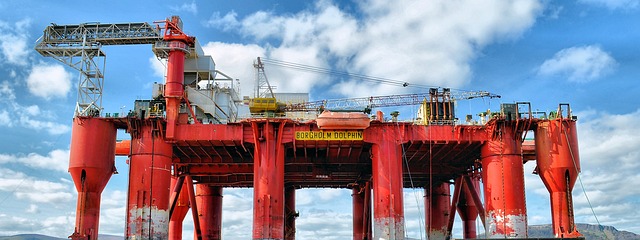The Rise of Oil Rig Jobs: Opportunities, Challenges, and Insights
Oil rig employment has experienced significant growth in recent years, driven by increasing global energy demands and technological advancements in offshore drilling. These specialized positions offer unique career paths for individuals seeking high-paying work in the energy sector, though they come with distinct requirements and challenges. Understanding the landscape of oil rig employment can help prospective workers make informed decisions about pursuing opportunities in this demanding yet rewarding field. This article provides general information about oil rig careers rather than specific active job listings.

What Are Oil Rig Jobs?
Oil rig positions encompass a wide range of roles required to operate drilling platforms and extract petroleum resources from beneath the ocean floor or on land. These jobs span multiple skill levels, from entry-level positions like roustabouts and roughnecks to specialized technical roles such as drilling engineers and subsea technicians. Workers typically live on the rig for extended periods, often following rotation schedules of several weeks on-site followed by equivalent time off.
Common positions include derrick operators who manage drilling equipment, mud engineers who maintain drilling fluid systems, and crane operators who handle heavy equipment movement. Safety personnel, medics, and catering staff also play crucial roles in maintaining rig operations. Each position requires specific training and certifications, with many companies providing comprehensive safety courses before deployment.
Advantages of Oil Rig Jobs
Working on oil rigs offers several compelling benefits that attract workers from various backgrounds. Compensation packages typically exceed those found in many traditional industries, with entry-level positions often starting at competitive salaries and experienced workers earning substantial incomes. The rotation schedule, while demanding, provides extended periods of time off between work cycles, allowing for unique work-life balance opportunities.
Career advancement potential remains strong within the industry, as workers can progress from basic operational roles to supervisory and technical positions. Many companies invest heavily in employee training and professional development, offering pathways to specialized certifications and higher-paying roles. The international nature of oil exploration also provides opportunities for global travel and cultural experiences.
Challenges of Offshore Jobs
Offshore oil rig work presents significant physical and mental challenges that potential employees must carefully consider. The isolated environment requires workers to live in confined quarters with limited privacy and recreational options for weeks at a time. Weather conditions can be harsh and unpredictable, creating both safety concerns and operational difficulties.
The work itself is physically demanding and potentially dangerous, requiring strict adherence to safety protocols and maintaining constant vigilance. Emergency situations can arise without warning, demanding quick thinking and coordinated responses. Family separation during rotation periods can create emotional stress, particularly for workers with young children or family obligations. Additionally, the cyclical nature of the oil industry means job security can fluctuate with market conditions and global energy demands.
How to Secure an Oil Rig Job
Obtaining employment on an oil rig requires careful preparation and understanding of industry requirements. Most positions require completion of basic offshore safety training courses, including survival training and equipment certifications. Physical fitness standards must be met, as the work environment demands stamina and the ability to perform under challenging conditions.
Building relevant skills through technical training programs or related work experience can improve employment prospects significantly. Many successful candidates have backgrounds in construction, mechanical work, or maritime industries. Networking within the industry and maintaining relationships with recruitment agencies specializing in offshore work can provide access to opportunities. Candidates should prepare for thorough background checks and medical examinations as part of the hiring process.
The Future of Oil Rig Jobs
The outlook for oil rig employment reflects broader changes in global energy markets and technological developments. While renewable energy growth continues, petroleum extraction remains essential for meeting current energy demands and supporting various industrial processes. Technological advancements are creating new job categories while potentially reducing demand for traditional manual labor positions.
Automation and remote monitoring capabilities are transforming rig operations, requiring workers to develop new technical skills and adapt to evolving equipment. Environmental regulations and safety improvements continue to influence industry practices, creating opportunities for workers with specialized knowledge in these areas. Market volatility will likely continue affecting employment levels, making adaptability and continuous skill development crucial for long-term career success.
| Position Type | Salary Range (Annual) | Experience Level |
|---|---|---|
| Entry-level Roustabout | $35,000 - $55,000 | 0-2 years |
| Experienced Roughneck | $45,000 - $70,000 | 2-5 years |
| Derrick Operator | $55,000 - $85,000 | 3-7 years |
| Drilling Engineer | $75,000 - $120,000 | 5+ years |
Salary estimates mentioned in this article are based on industry averages but may vary significantly based on location, company, market conditions, and individual qualifications. Independent research is advised before making career decisions.
The oil rig industry continues evolving as companies balance operational efficiency with safety requirements and environmental considerations. Workers entering this field should prepare for physically demanding work environments while recognizing the potential for substantial financial rewards and unique career experiences. Success in oil rig employment requires dedication to safety protocols, adaptability to changing technologies, and resilience in challenging working conditions. Understanding both opportunities and challenges helps individuals make informed decisions about pursuing careers in this specialized sector of the energy industry.




